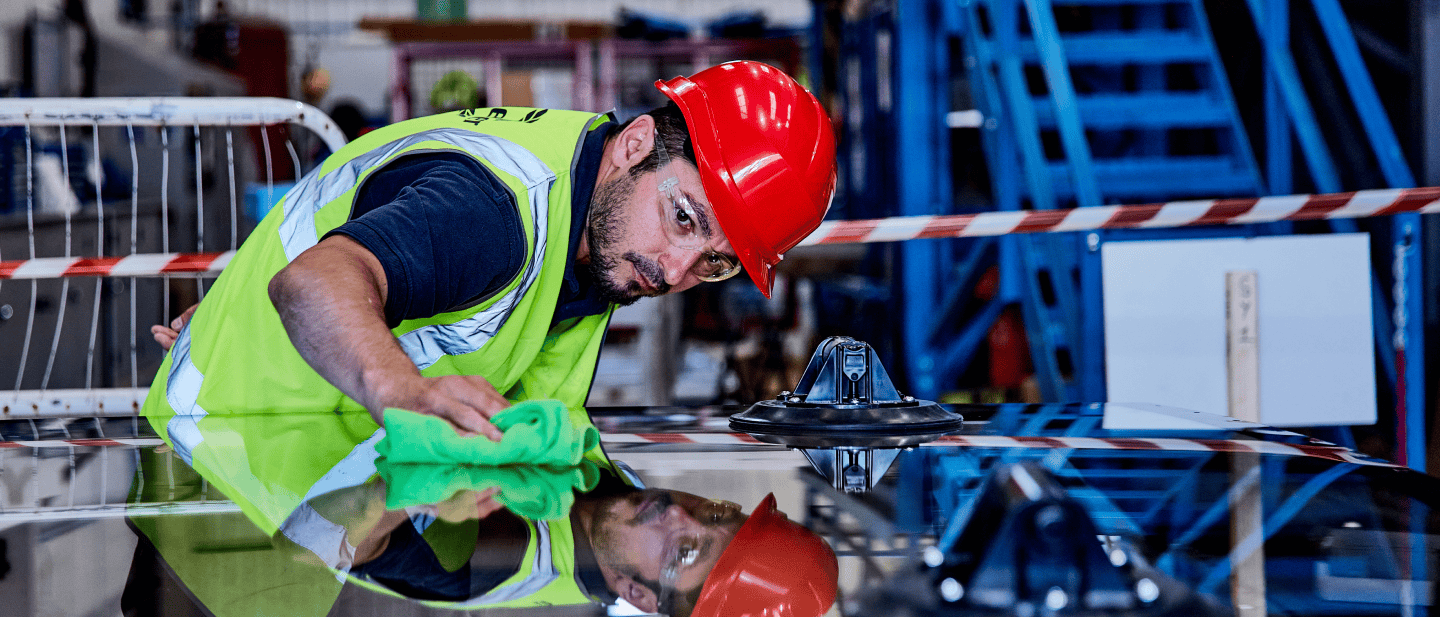The Ultimate Yacht Maintenance Checklist: A Guide for New Owners

Owning a yacht is one of life’s greatest privileges. It represents freedom, adventure, and a lifestyle centered on luxury and discovery. Yet behind the pleasure of ownership lies an important responsibility: proper yacht maintenance. A well-maintained yacht delivers not only exceptional performance but also ensures safety, longevity, and the preservation of value over time.
For new owners, the subject of maintenance can feel daunting at first. From engines and hull integrity to interiors and electronics, every system requires care. However, with the right approach, and the support of a trusted distributor such as DCH Marine, maintenance becomes less of a challenge and more of an investment in protecting your vessel.
This guide provides a detailed look at essential maintenance practices for 2025, helping yacht owners safeguard performance and reliability while highlighting how professional after-sales support enhances the ownership experience.
Why Yacht Maintenance Matters
A yacht is a complex vessel with interconnected systems. Regular maintenance ensures these systems work together seamlessly, keeping the yacht safe, efficient, and ready for every voyage. Skipping or delaying upkeep can lead to higher fuel consumption, mechanical failures, and significant repair costs later on.
Key reasons why maintenance matters include:
- Safety: Prevents accidents caused by mechanical faults, electrical issues, or compromised hull integrity.
- Performance: Ensures engines, navigation systems, and onboard amenities perform at their peak.
- Longevity: Protects critical systems from premature wear caused by saltwater, UV exposure, and regular use.
- Value retention: Maintains strong resale potential with a clear service history.
For owners purchasing through DCH Marine, professional after-sales support further simplifies this process. With access to trained technicians, genuine parts, and tailored service programs, maintaining a yacht becomes a seamless experience designed to protect both the vessel and its value.
Long-Term Benefits of Consistent Maintenance
Routine yacht care does more than just keep your vessel looking sharp. It lays the foundation for safer voyages, better performance, and stronger financial value over time. By investing a little effort regularly, you can avoid the stress of costly repairs and enjoy a more reliable boating experience. Let’s look at the key long-term benefits you can expect from consistent maintenance.
Lower Long-Term Costs
Regular maintenance helps identify small issues before they escalate into expensive repairs. A minor leak, loose wire, or worn filter can be corrected quickly and at a fraction of the cost compared to a full system failure. By staying proactive, yacht owners save significantly on long-term expenses.
Improved Efficiency
A clean hull, well-serviced engine, and properly calibrated navigation systems all contribute to greater efficiency. Reduced drag in the water, clean fuel filters, and balanced systems mean lower fuel consumption and smoother handling. This efficiency translates into both cost savings and a better onboard experience.
Stronger Resale Potential
A well-documented maintenance history is one of the most valuable assets when reselling a yacht. Prospective buyers are far more confident purchasing a vessel that has been consistently serviced. Yachts backed by professional after-sales support, such as those sold through DCH Marine, often command stronger resale values in competitive markets.
Peace of Mind at Sea
Perhaps the greatest benefit of regular upkeep is peace of mind. Knowing that engines, electronics, and safety equipment have all been checked reduces uncertainty on the water. Owners can focus on enjoying the journey rather than worrying about potential breakdowns or safety hazards.
Core Areas of Yacht Maintenance
Proper yacht maintenance covers several core areas that ensure safety, comfort, and performance. By breaking it down into these categories, owners can stay on top of tasks without feeling overwhelmed.
Engine and Mechanical Systems
The engine is the heart of your yacht, and keeping it in good condition is vital. Regular oil changes, coolant checks, and inspections of belts, hoses, and filters help prevent breakdowns.
Paying close attention to unusual noises, vibrations, or leaks ensures that small issues are fixed before they turn into major problems. For owners who prefer expert servicing, DCH Marine provides access to trained technicians who understand the complexities of premium yacht engines.
Electrical and Battery Systems
A well-functioning electrical system is crucial for navigation, lighting, and onboard comfort. Batteries should be checked frequently for charge levels and signs of corrosion. Wiring and connections need to be inspected for wear, as salt and moisture can cause damage over time.
Keeping the system clean and secure reduces the risk of unexpected failures. DCH Marine supports yacht owners by offering original spare parts and guidance on electrical maintenance to extend battery life.
Hull and Exterior Surfaces
The hull and deck are constantly exposed to sun, salt, and water, making them prone to wear. Regular washing with marine-safe products helps prevent corrosion, while waxing and polishing protect the gelcoat.
Inspecting the hull for cracks, blisters, or marine growth is essential to maintaining both performance and appearance. A spotless exterior not only boosts performance but also helps preserve the yacht’s value for resale.
Safety Equipment
Safety gear is one of the most important aspects of yacht ownership. Items such as life jackets, fire extinguishers, flares, and radios should be inspected regularly to confirm they are in good condition and within their service dates.
Properly stored and functioning equipment ensures compliance with regulations and provides peace of mind in case of emergencies.
Interior and Comfort Systems
The interior of a yacht also requires consistent care to stay comfortable and functional. Upholstery, air conditioning units, and plumbing systems should be checked for wear, leaks, or damage.
Cleaning and treating fabrics and surfaces helps prevent mold or mildew, particularly in humid climates. A well-maintained interior ensures that time spent onboard is as relaxing as it is memorable.
Navigation and Communication Systems
Modern yachts rely heavily on electronics for safe and efficient travel. GPS units, radar, autopilot systems, and VHF radios should be tested regularly to ensure accuracy and reliability. Keeping software up to date and performing system checks before trips guarantees smoother navigation and safer voyages.
Owners who purchase through DCH Marine benefit from access to technical support that helps keep navigation systems reliable and ready for longer journeys.
The Importance of Professional Care
Luxury yachts are highly advanced vessels, combining sophisticated engineering with refined interiors. Their complexity means that routine upkeep should never be reduced to simple checklists or quick do-it-yourself fixes. Instead, professional care ensures that each system, from propulsion to navigation, operates safely and efficiently.
1. Preserving Mechanical Integrity
The engines, generators, and propulsion systems of a yacht demand precise servicing. Even minor oversights in oil changes, coolant checks, or fuel systems can escalate into significant failures. Professional servicing not only addresses immediate performance but also prevents hidden wear that could shorten the lifespan of critical components.
2. Protecting Onboard Systems and Comfort
Beyond mechanical parts, a yacht is equipped with climate control, electrical networks, entertainment systems, and advanced navigation technology. These systems are integral to the comfort and luxury experience on board. Skilled technicians are trained to test, calibrate, and update these elements, ensuring seamless operation and minimizing the risk of mid-voyage disruptions.
3. Safeguarding Value and Resale Potential
A well-maintained yacht is far more than a pleasure craft; it is an asset. Documented service records and professional inspections reassure future buyers that the vessel has been properly cared for, often commanding higher resale values. Consistent professional maintenance not only enhances daily reliability but also protects the financial investment behind ownership.
Professional Support from DCH Marine
For owners who prefer confidence over uncertainty, DCH Marine offers certified after-sales support tailored to luxury motor yachts. Rather than leaving maintenance to chance, owners benefit from specialized programs designed to protect mechanical systems, preserve interiors, and maintain long-term value.
This professional care transforms ownership from a responsibility into a worry-free experience, allowing clients to enjoy the water with complete peace of mind.
Building a Practical Yacht Maintenance Schedule You Can Stick To
Maintaining a yacht can feel overwhelming if tasks aren’t organized into a clear routine. A practical schedule breaks down daily, weekly, monthly, quarterly, and annual checks, making upkeep manageable and consistent. Sticking to this schedule helps preserve performance, prevent costly breakdowns, and protect your investment in the long run.
Daily Tasks: Quick Pre-Trip Checks
Daily maintenance is simple but critical. Before every outing, inspect fuel and oil levels, test batteries, and check the bilge for excess water. Wipe down exposed surfaces to remove salt buildup and confirm safety equipment is ready for use. These quick actions ensure the yacht is safe, reliable, and prepared for each trip.
Weekly Routine: Keeping Things Fresh
Once a week, it’s important to go slightly deeper. Inspect ropes, lines, and deck fittings for wear, and flush freshwater systems to prevent buildup. Electronics and navigation gear should be tested to make sure they are functioning properly. A general clean of the deck and visible hull keeps the yacht looking sharp while protecting it from long-term damage.
Monthly Maintenance: Preventing Bigger Issues
Monthly tasks involve closer inspection of critical systems. Clean raw water strainers, check through-hull fittings, and look over the hull for marine growth. Lubricating moving parts like hinges, pulleys, and throttle levers prevents unnecessary wear. Safety equipment such as flares and fire extinguishers should also be checked to ensure compliance and readiness.
Quarterly Checks: Addressing Key Systems
Every three months, certain systems require more detailed attention. Oil and fuel filters should be replaced, while steering, throttle, and trim systems need to be tested for responsiveness. Bilge pumps and float switches should be checked under real conditions, and the anchor chain inspected for rust or damage. These tasks may not take long, but they are essential for reliability.
Key quarterly focus areas include:
- Oil and fuel filter replacements.
- Steering and throttle system tests.
- Bilge pump and float switch checks.
- Anchor and chain inspections.
Annual Service: The Big Check-Up
Annual maintenance is the most comprehensive step in the schedule. A haul-out allows for full hull inspection and anti-fouling treatments, while the engine and generator receive professional servicing. Onboard systems such as HVAC, plumbing, and navigation equipment should be inspected thoroughly. Safety gear, including rafts and EPIRBs, must be replaced if expired.
Completing these annual checks ensures the yacht is fully prepared for another year of safe and enjoyable cruising. For owners in Singapore, DCH Marine can connect buyers with trusted service providers who specialize in maintaining premium yacht brands like Sunseeker and Saxdor, ensuring peace of mind year after year.
DIY vs Professional Care: Finding the Right Balance
Caring for a yacht involves a mix of hands-on tasks and professional servicing. Some jobs are straightforward enough for owners to manage, while others require the expertise of certified technicians. Striking the right balance helps control costs without compromising safety or performance.
When DIY Makes Sense
Routine upkeep is ideal for owners who enjoy staying involved with their vessel. Washing the deck, checking fluid levels, and polishing metalwork are manageable for most beginners. These small tasks not only save money but also allow owners to become more familiar with their yacht. Regular visual inspections, like looking for frayed lines or corrosion, are another area where DIY proves effective.
When to Call in the Professionals
Certain jobs demand technical knowledge and specialized tools. Complex systems like the engine, electrical wiring, and steering mechanisms should be inspected and serviced by experts. Persistent issues, such as repeated battery failures, bilge pump malfunctions, or unexplained power loss, also signal the need for professional attention. In many cases, warranty agreements require certified servicing to keep coverage valid.
Typical scenarios for professional care include:
- Full engine servicing or overhauls.
- Electrical diagnostics and repairs.
- Steering and throttle system faults.
- Seasonal or annual inspections that require haul-outs.
Balancing Cost and Peace of Mind
While DIY helps reduce expenses, professional services often prevent bigger, costlier problems down the line. Owners should plan a budget that combines routine DIY care with scheduled professional servicing. DCH Marine, for instance, partners with trusted service providers who specialize in brands like Sunseeker and Saxdor, making it easier for owners to access high-quality maintenance support when it matters most.
Preparing for Off-Season or Storage
When the yachting season comes to an end, proper storage ensures your vessel stays in prime condition. Taking a few preventive steps will save you from costly repairs and make it easier to relaunch when the next season begins.
Engine and Systems Care
Before storage, the yacht’s engine and onboard systems should be secured. Fuel tanks are often topped and stabilized to prevent condensation, while freshwater systems are flushed and drained to avoid damage. In colder climates, adding antifreeze helps protect key components.
Interior and Equipment Removal
Soft furnishings, bedding, and electronics should be removed and stored in a dry place. This prevents mold, mildew, and corrosion from developing while the yacht is not in use. A thorough interior clean also reduces the risk of unpleasant odors during storage.
Cleaning and Covering the Yacht
The exterior needs equal attention. Washing the hull, deck, and topsides removes salt and grime that cause long-term damage. Once clean, a breathable cover is used to shield the yacht from weather exposure while still allowing airflow inside.
Ongoing Inspections
Even in storage, occasional checks are wise. Inspecting the bilge, confirming the cover is secure, and checking for pests every few weeks can prevent small issues from escalating. For added peace of mind, DCH Marine offers professional after-sales support to help owners prepare their yachts for storage and relaunch, ensuring every detail is handled with expert care.
Final Thoughts
Owning a yacht is about more than luxury; it’s about responsibility and pride of ownership. By committing to regular maintenance, owners protect their investment, ensure safety on the water, and enjoy worry-free voyages.
For those purchasing through DCH Marine, maintenance is never a burden. With a dedicated after-sales team, access to genuine parts, and service programs tailored to each brand, DCH Marine ensures that every yacht remains in peak condition year after year.
Whether it’s a sleek Saxdor, a luxurious Sunseeker, or another brand from the DCH Marine portfolio, professional support is always close at hand. This commitment allows owners to focus on what truly matters: enjoying the open water with complete confidence.
Key Takeaways
- Regular maintenance ensures safety, performance, longevity, and resale value by keeping all yacht systems functioning properly.
- Consistent upkeep reduces long-term costs, as small issues can be fixed early before escalating into expensive repairs.
- Maintenance improves efficiency, including lower fuel consumption, smoother handling, and optimized performance of engines and navigation systems.
- Professional support, such as from DCH Marine, enhances ownership, providing trained technicians, genuine parts, and tailored service programs.
- Core maintenance areas include engines, mechanical systems, electrical/battery systems, hull and exterior, safety equipment, interior comfort systems, and navigation electronics.
- Routine schedules, daily, weekly, monthly, quarterly, and annual checks, help keep maintenance manageable and effective.
- DIY maintenance is suitable for simple tasks, such as cleaning, fluid checks, and visual inspections, while complex systems require professional care.
- Professional care preserves mechanical integrity, onboard comfort, and resale potential, ensuring all systems operate safely and efficiently.
- Proper off-season storage is crucial, including securing engines, removing interior items, cleaning the yacht, covering it, and performing periodic inspections.
- Maintaining a yacht is both a responsibility and an investment, providing peace of mind, safe voyages, and a worry-free ownership experience.
FAQs
How often should a yacht be serviced?
Most yachts should have an annual engine, drivetrain, and generator service, similar to a car’s regular servicing. Monthly checks and more frequent cleaning, especially of the hull, are recommended to maintain peak condition.
Why is yacht maintenance important?
Yacht maintenance ensures safe and reliable operation, preserves the vessel’s value, prevents corrosion and wear caused by saltwater, and avoids costly repairs from neglected issues.
What parts of a yacht need regular maintenance?
Important areas include the engine, drivetrain, generator, hull and running gear, metal fittings, upholstery, woodwork, canvas covers, and mechanical components susceptible to corrosion or wear.
How does saltwater affect yacht components?
Saltwater is corrosive and speeds up deterioration of gel coats, metals, rubber fittings, and engine parts. Removing salt residue and applying protective coatings are essential to prevent damage.


